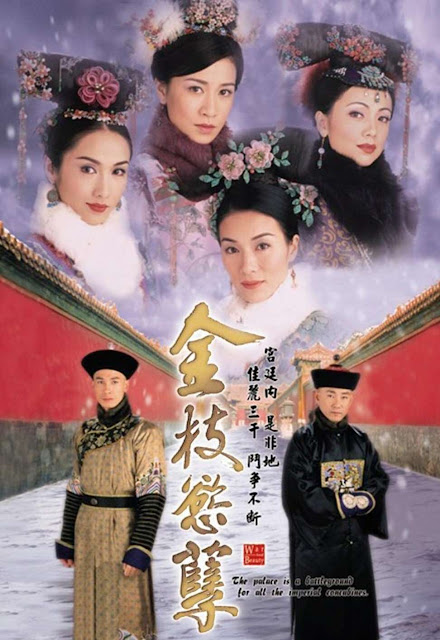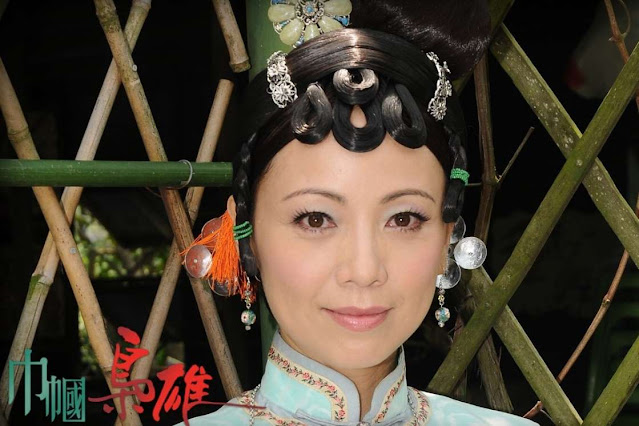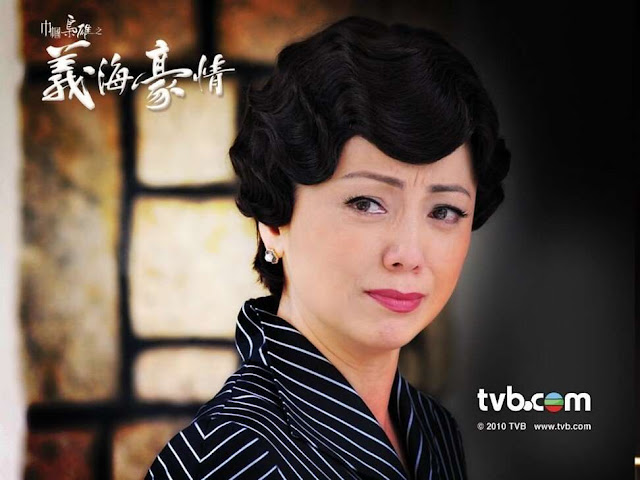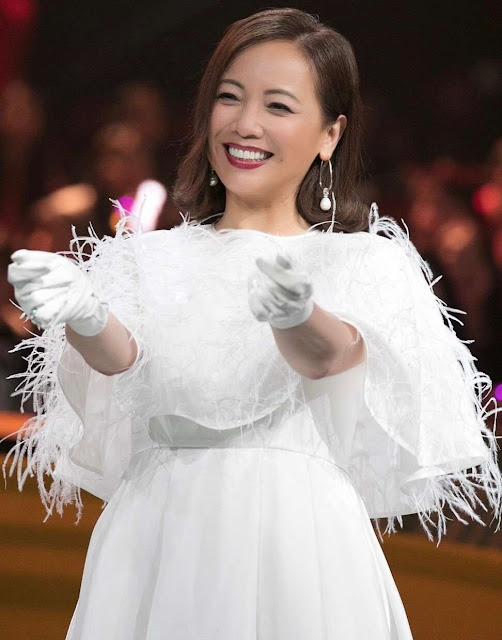Her role as a scheming consort in the 2004 imperial palace TVB drama War and Beauty - one she reprised in its 2013 sequel Beauty at War - made Sheren Tang Shui-man the queen of Chinese-language television drama.
Critics lauded the Hong Kong actress, now 54, for her portrayal of a complex character who was neither a heroine nor a villain. Her performance as Consort Yu, one of Jiaqing Emperor's concubines, was loved by viewers in the city and in China.
Tang, however, says she has sworn off the genre for good. "I don't want to star in palace intrigue dramas with endless fights for power any more. Playing unedifying roles is a waste of time," she tells the Post.
When she looks back over her nearly four-decade-long showbiz career, the drama that catapulted her to stardom doesn't even rank among her favourites. Instead, Tang names Rosy Business (2009) and No Regrets (2010) - which star her and fellow actor Wayne Lai Yiu-cheung as romantic leads - as the ones she likes the most.
The actress says the strong female roles in the two series - a drug lord's righteous daughter who strikes up a complicated relationship with a police superintendent (Lai) in No Regrets; and a rice baron's fourth concubine who takes over the family business from her late husband in Rosy Business - are exemplary women who have inspired viewers.
"The two characters led viewers to reflect on their own lives and try to be women of virtue," Tang explains. She won TVB's best actress awards in 2009 and 2010 for her performances in both the shows.
Tang was surprised to learn that the relationship depicted between two middle-aged characters in No Regrets changed how young people viewed romance and real love.
"Unlike the relationships depicted in (some) Hollywood productions, the characters played by me and Lai have never kissed or even held hands. The series' young fans wanted to pursue such platonic romantic (ideals after watching them)," Tang says.
Although a decade has passed since No Regrets was first aired, the show remains popular and has a solid fan base - something that also surprises Tang. "It has taken on a life of its own, with fans doing anniversary celebrations every year."
The actress, a devout Christian, has turned down many drama roles over the past few years as she now only wants to take on ones that will positively affect people's lives.
"I have passed the stage where I am attracted by roles I have never played before. I am very selective now," Tang says.
"I have to see the full script before taking on a role so that I know the meaning behind the story and the character. It's very difficult for a full script to be ready before a television production begins. That's why I have not starred in anything for a long time."
She adds being a Christian has enriched her as an actor.
"(My character) in Rosy Business is a perfect woman with tolerance. In the master-servant relationship (between her and Chai Kau, a tramp-turned-businessman played by Lai), their romantic feelings for each other are ambiguous. She protects and nurtures him to become a lord without ever trying to upstage him.
"The Bible taught me real love is not built on desires. As the past, non-Christian, me who was obsessed with romantic feelings and entered into relationships easily, I wouldn't have been able to play such a role."
Tang describes her formative years in the 80s at Hong Kong broadcasting channel TVB as exhausting, as she would often have to survive on no sleep for several nights in a row during filming. The punishing schedule there made her subsequent work in China feel like a cakewalk in comparison.
"I found out I could actually have sufficient rest while shooting a television production (in China)," says Tang. "Although I might not be the lead in (these) productions and had to work in remote areas, I would rather work there, as I had no life while working in Hong Kong."
Tang adds that, now the entertainment industry in China is being taken more seriously, it makes her feel more like a professional actress. "While Hong Kong entertainment press will ask about gossipy things, their (Chinese) peers explore issues like character analysis, the artistic value of works, my views on the industry and so on. Such questions make me feel like my work is more than entertainment."
More Hong Kong small-screen stars heading into the mainland for work, and Tang's advice for them is to have humility, to be willing to start from the bottom and not expect preferential treatment. She cites Myolie Wu Hang-yee, who recently won an acting talent competition show in China, as a role model.
"First, she mastered Mandarin," she says. "Although she was pregnant while making the show, she never asked the production personnel to give her special treatment. She even brought her son on set."
Charmaine Sheh Sze-man - who was in the 2018 smash hit Story of Yanxi Palace - is another good example. "Being former TVB actresses, we are grateful for the training there. We passed the most difficult drills that laid the foundation for (our future acting career)," says Tang.
Her last on-screen role, in Till Death Do Us Part (2019) on ViuTV, another Hong Kong broadcaster, felt a little like coming home as she had - since leaving TVB upon finishing shooting Beauty at War in 2013 - only been working in China.
The real bonus of working with ViuTV? The actress says that "they could also satisfy many of my demands, like giving me enough rest time and a reasonable financial reward".





No comments:
Post a Comment